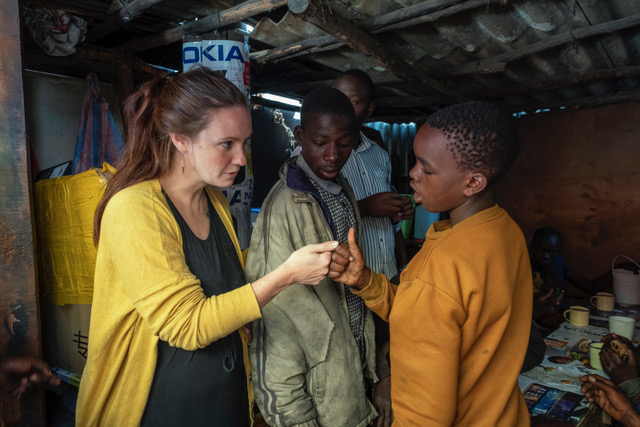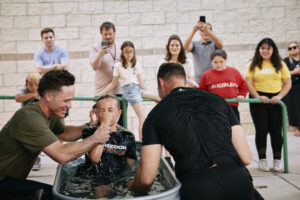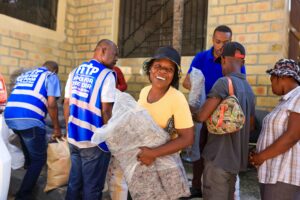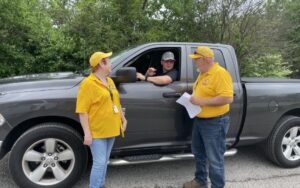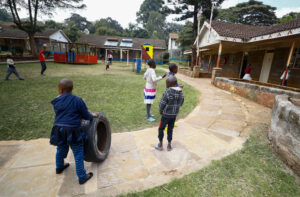
NAIVASHA, Kenya (BP) – Kristen Lowry discovered her calling to minister to orphans and vulnerable children as a Journeyman to Kenya for the International Mission Board, but she quickly noticed a need for strategy reform.
In her new role as International Orphan Care consultant for Send Relief, Lowry now advises and educates Southern Baptists about more family- or community-based care for international orphans and at-risk children.
Although she has only been in the role for a few months, Lowry has been ministering to children as part of the leadership of Shelter Yetu, a rescue center in Naivasha, Kenya, since 2014. It is there Lowry has implemented this change in care strategy.
“We (Lowry and her ministry partners) realized, as is the case with most orphanages, that most of those kids had families,” Lowry said. “They were there just to get an education and to get three meals a day and whatever other benefits that a Western orphanage would offer them.
“We kind of changed the strategy of the orphanage. We took all the kids home that we could, and then we began rescuing kids off the streets. Up to date, I think Shelter Yetu has rescued around 600 kids from the streets since 2014. Most of those children have been reintegrated to their families of origin. In fact, out of the 600 children, only one were we unable to find his family.
“Hands down that (family-based care) is the best model,” she continued. “A safe, loving family is the most essential source of belonging, emotional support and physical and mental development for children. Any type of residential care should be a temporary last resort.”
Lowry explained the term “orphan” doesn’t always refer to children with no living parents.
She pointed to research indicating more than 5 million children live in orphanages and other institutions worldwide, but 80 percent of those children have at least one living parent.
The parent is often willing to care for their child if they had the means and support to do so. Even orphans with no living parents typically have extended family or community members who would be willing to take in the child if they could.
“Poverty, not the loss of parents, is the leading reason why children are placed in orphanages,” Lowry said. “It (ministering in Kenya) just gives me a heart for those kids living in institutions, knowing that there are a lot of institutions in the world.”
She explained the best way to tend to the needs of vulnerable children is to strengthen the capacity of their families and communities to care for their well-being, as opposed to potentially harmful institutional care.
Lowry said growing up in an institution has significant harms for children, as years of international research has shown it can severely harm children’s physical and cognitive development and expose them to a higher risk of abuse and neglect.
As a result of this research, Lowry said a lot of U.S. support for orphans has shifted away from the traditional institutional care model. Still, more than $2 billion still goes out from the U.S. to traditional orphanages around the world.
Additionally, the cost of supporting a child in an orphanage is 5-10 times higher than in a family.
Lowry wants Southern Baptists to be on the front lines of advocating for this change in international orphan care.
“We have unintentionally created this other orphan crisis,” Lowry said.
“I’ve talked to people who are social workers or run orphanages here (in Kenya) who recognize these kids in our care have families and we would like to put them with their families and serve them there, but we’re afraid that if we do that we’ll lose all our funding.
“We can be change-makers in helping assure them, ‘you don’t have to be afraid.’ We will walk through this process with you and help you to transition to family-based care.’ By strengthening their families we’re strengthening their communities. And ideally, we’re doing that through the local church.”
Lowry said a shift in global orphan care is already beginning, and she has witnessed such in Kenya.
After completing her time as a Journeyman, Kristen returned to the country as a full-time IMB missionary.
Her ministry with her local partner Eunice looked like letting children who were living on the streets stay in the living room of their apartment while trying to find ways to return them to their families.
Lowry and Eunice were praying for many years for a way to acquire even a small amount of land to be able to minister to these children more effectively.
Back in the United States, Lowry’s mother (who works in real estate) sold a house to a man who was moving to the States from Kenya. She shared with him about her daughter’s work with street kids in the country.
The man and his wife happened to be on the board of trustees for Shelter Yetu, which was operating as a traditional orphanage at the time, and even donated the 10 acres of land which the orphanage operates on.
When the woman who was running the orphanage died, he called Lowry’s mom to ask if Kristen would like to inherit the orphanage.
Kristin and Eunice now serve as co-executive directors at Shelter Yetu, which now operates as a rescue center for vulnerable children. The center rescues street children, provides them with rehabilitation services and empowers their families to safely reunite with them.
Last year, Kenya’s government passed an updated Children’s Act into law, with one of the goals being to essentially eliminate orphanages in the country and return vulnerable children to family-based care within the next 10 years.
Lowry said Shelter Yetu is in the process of helping eight orphanages throughout the country transition to family-based care as a result of this government mandate.
Her ministry strategy with Send Relief is to raise awareness of these issues among Southern Baptists and to develop programs to help Southern Baptists minister to orphans more effectively.
“I would love to see U.S. churches come beside local churches in the Global South (a geographical region encompassing countries in Africa, Latin America and the Caribbean) and help solve those problems that the communities are facing, rather than wait for the child to be separated from their family,” Lowry said.
“I just want Southern Baptists to be a part of changing that narrative and that story and that trend.”
For more information and to sign up for personalized coaching from Lowry, churches can visit Send Relief’s website.
